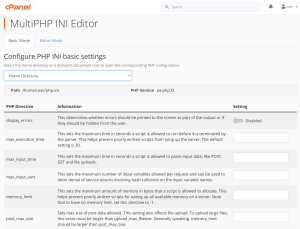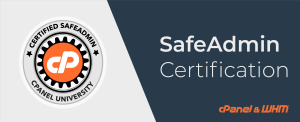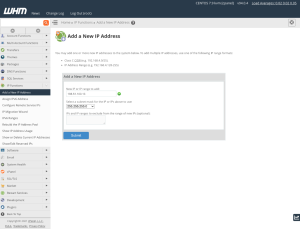
Choosing a hosting platform in 2020 is more like navigating a labyrinth, and with so many options, it can seem like a daunting task. Over the past decade, the web hosting market has grown over 100%, currently valued at $62 billion in 2020. As with much of technology in the past decade, web hosting is in constant flux. From new technologies to consolation and acquisitions, the competition in the industry has never been so fierce.
Table of Contents
Aspects to consider when choosing a web hosting platform in 2020:
Hardware:
No matter what platform your website is hosted on, the equipment is an integral part of speed and maintenance. Server hardware uses the same components as a desktop PC like memory, hard drives, and CPUs. Much of the equipment in a server is customized for more dedicated functions than a desktop PC. From the latest state of the art CPUs to solid-state drives (SSD) and optimized RAM, the server is only as powerful and stable as its hardware. Making sure a hosting provider uses up to date server hardware will give you better performance and save you from possible issues and downtime from hardware failure.
Uptime:
Server uptime has historically been one of the top reasons users choose to change hosting providers. If you have ever had your website down for days due to a hosting issue, you know this pain. Luckily, uptime is less of a problem today than it has been in the past.
Currently most hosting providers have a 99% uptime guarantee, and with new ways to monitor issues, downtime is at an all-time low. As reported by Jerry Low of HostScore, “Most shared web hosting service providers tracked by HostScore have demonstrated relatively high reliability. Overall data shows this to exceed 99% in general. However, the few which did exhibit lower performance lagged considerably far behind, dropping below 95% in many cases.“
For more information about uptime, check our recent blog, “My Website is down what next?“.
Bandwidth & Storage:
In modern web hosting, bandwidth and storage aren’t as big of an issue as they were over a decade ago. Most web hosting plans offer enough bandwidth and storage space for single or multiple websites.
Many shared hosting plans offer “unlimited” or “unmetered” bandwidth and storage, this might seem too good to be true, and it is. When you read the fine print, some shared hosting providers still restrict you to a certain number of connections and files on the server. If you are running a single business website on a shared hosting platform, bandwidth and storage shouldn’t concern you, but there are still a few scenarios where bandwidth and storage space matter.
- You are selling downloadable virtual products that take up large amounts of storage space.
- You are an agency hosting your clients on the same server instance.
- You run a media or community-based site that allows users to upload media.
- Your website is getting traffic in the millions per day.
If you plan on hosting multiple websites or multimedia, consider the amount of storage space provided in a hosting plan. Using a VPS (Virtual Private Server) or Scalable cloud-based service or using a Content Delivery Network (CDN) to store the media is the best solution.
Support & Managed Services:
Hosting support has been an issue for years, with long queues in email support and longer in phone support. As we enter the next decade of AI chatbots and Social networks like Discord, YouTube, Twitter, and Facebook, it is easier than ever to reach out for support. Finding providers active on these networks can give you a lot of insight into how they interact with their customers.
Managed services have also taken much of the load and shifted issues from the customer to the host. Many of these services offer “white glove” hosting that keeps your site up-to-date and secure. These services let you take care of your business while the host manages your server and website software.
CMS-Centric Hosting Platforms:
CMS-centric hosting focuses on a Content Management System like WordPress, Joomla, or Drupal. These hosts offer optimized servers, support, training, and custom tools for users focused on the CMS. Hosting with a CMS-focused provider differs from the traditional hosting space as they support more than the hosting but also support the CMS software.
WP Toolkit for cPanel is a perfect example of a CMS-centric platform tool that helps users manage and secure their WordPress installations in just a few clicks.
Specialized Hosting Platforms:
Today there more than a handful of platforms offering out-of-the box solutions beyond the web-centric experience. Some of the most innovative involve site speed and optimization with Function as a Service (FaaS) and pre-rendering solutions of websites.
- FaaS: Serverless Architecture or Function as a Service (FaaS) is a software design pattern hosted by services like AWS Lambda, Microsoft Azure Functions, or Twilo Functions, eliminating the need for server software and hardware management.
- Pre-rendering: Offers CDN based caching of a website. The CDN software determines if a pre-rendering request comes from a crawler; the cache servers will contact the pre-rendering backend straight from CDN nodes instead of serving the standard cached request.
Good Question! While most hosts won’t disclose what websites are on the same server, it’s essential to know that there are many, perhaps hundreds to thousands. One of the ways these companies offer low-cost hosting is by resource sharing on a single server.
Traditionally, shared hosting is where most websites have started due to the low initial investment. Still, once they become moderately successful, they need more resources, and this is where scalability becomes an issue.
As hosting technologies like VPS and Cloud services grow, shared hosting is still a viable solution for a single website for a blog or a small business site. The shared hosting space continues to grow yearly and accounts for over 20% of the current total hosting marketshare.
Dedicated to Bare Metal:
If you’re interested in creating your own custom server, then Bare Metal is the best place to start. The term Bare Metal refers to a dedicated physical server that you are essentially renting from the hosting provider. A dedicated server allows you to install and setup the server to your software specifications. If you are not technical enough to configure a server, most hosting companies offer managed services to help you get the software installed and also provide essential management.
A decade ago, co-locations offered a true Bare Metal experience allowing you to build your server and install it in a physical location. With the advent of Virtual Private Servers (VPS) and current security protocols at data centers, the physical co-location concept has moved virtually.
If security and shared resource abuse is your main concern, a Bare Metal dedicated server might be your best option.
Are Virtual Private Servers an answer to bare metal?
Virtual Private Servers (VPS) are a hybrid of shared and dedicated hosting platforms. You are still on a shared server, but you can customize your server environment and scaleable resource options. Unlike shared hosting, a VPS guarantees you storage and RAM just like a a dedicated server, no matter what other resources on the server are in use. Today, VPSs offer a much more secure and stable platform that shared hosting for a fraction of a dedicated server’s price.
Hyperscaling in the Cloud:
Cloud-based hosting has quickly become the most popular platform for enterprise-level businesses that require real-time scalable options. The ability to seamlessly provision memory, networking, and storage resources an attractive option, but it all comes at a price. Understanding the public cloud billing model is far more complicated than traditional hosting model tiers. While offering low-cost storage starting at cents on the dollar, there are varying “hidden charges” based on usage and features. What might seem like an affordable option can quickly outgrow your budget. As we look to the future, most analysts predict these fees and expenses will adjust as usage increases.
Choosing a hosting platform:
In conclusion, choosing a hosting platform today is not difficult, as long as you plan for the future and focus on the features and resources your project will need. As technology advances, we see more affordable options in the Hyperscaler and Cloud market, allowing for mass adoption by more than just enterprise-level business.
At the heart of most of these hosting options is the cPanel software. For over 20 years, cPanel has been the premier hosting platform software used by hosting companies worldwide. Invested in the web’s future, cPanel looks forward to the next 20 years of the hosting industry.
If you have any further questions about web hosting or wish to discuss anything cPanel related, please join us on our official Discord channel, our official cPanel subreddit, or our Support Forum.

















